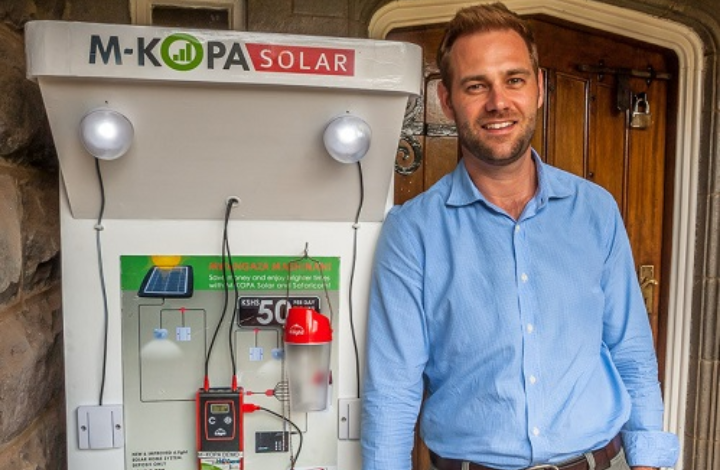Solar energy provider M-Kopa is facing a challenging period as questions arise about its financial management and tax compliance.
The company, led by CEO Jesse Moore, finds itself in the midst of a high-stakes tax dispute with the Kenya Revenue Authority (KRA), centering around a Ksh 308.5 million claim.
This legal tussle has sparked scrutiny over M-Kopa’s operations and the legitimacy of its financial practices.
At the core of the controversy is a dispute regarding unpaid taxes, which M-Kopa attributes to its customers’ failure to repay for solar lighting kits acquired on credit.
The company claims that over 47,000 customers have defaulted on these loans, contributing significantly to its financial troubles.
However, reports have emerged that the actual number of defaulting customers may be much lower, with estimates placing the figure at fewer than 20,000.
This discrepancy has cast doubt on the company’s claims, leading to concerns about the accuracy of M-Kopa’s debt reports.
M-Kopa has taken its case to the Tax Appeals Tribunal, seeking relief by having the large debt written off.
The firm argues that efforts to recover the outstanding debts from customers have proven prohibitively expensive.
According to their submissions, recovering the money would require a staggering Ksh 952.5 million, with each recovery effort costing approximately Ksh 20,000.
Should the company decide to pursue legal action against these customers, M-Kopa estimates that court proceedings would drive the cost up even further, with each case costing about Ksh 109,640.
M-Kopa has suggested that an out-of-court settlement would cost around Ksh 1.77 billion.
These financial projections have not sat well with the KRA, which has questioned M-Kopa’s efforts in pursuing the defaulters and their overall approach to settling the tax liabilities.
The tax dispute dates back to 2016 when KRA initially demanded Ksh 308,512,947 from M-Kopa.
After negotiations, the figure was revised to Ksh 193,736,915.
Though the tribunal ruled in M-Kopa’s favor, stating that the cost of recovering the debts would outweigh the benefits, there are lingering doubts within the industry.
Observers suspect that M-Kopa is still pursuing some of these customers and that if successful, KRA might miss out on collecting the taxes due.
Further complicating the situation, it has been suggested that M-Kopa may have added customers who purchased electric bikes on credit to its list of debtors.
This move has raised concerns that the company might be inflating its debtor list as part of a broader strategy to avoid paying taxes.
KRA has expressed frustration with M-Kopa’s approach, believing that the solar provider’s actions are part of a larger effort to avoid fulfilling its tax obligations.
This dispute places M-Kopa under increasing pressure, especially as it seeks relief from the Tax Appeals Tribunal.
Industry insiders are now questioning the company’s operations and the legitimacy of its claims.
M-Kopa, which has been active in Kenya since 2022, has gained a large customer base by offering products such as solar lighting kits, televisions, and smartphones on a pay-as-you-go basis.
The company has also attracted international attention, securing a loan of Ksh 1.9 billion from General Investments Management, a fund associated with former U.S. Vice-President Al Gore.
Despite these business successes, the company’s legal challenges have continued to mount.
Previously, M-Kopa faced a lawsuit from businessman Patrick Kamau, who accused the company, along with a local telecommunications giant, of infringing on his rights.
Additionally, the company had appealed against a tax demand from KRA for the financial years between 2017 and 2019, amounting to approximately $6.8 million.
M-Kopa argued that as a company incorporated in the United Kingdom, it should be exempt from paying taxes in Kenya under the Kenya-UK Double Taxation Treaty.
However, the tribunal ruled that the company’s core management decisions were made in Kenya, dismissing its argument for tax exemption.
M-Kopa’s operations, not just in Kenya but across Africa, are now under the spotlight.
The company operates in other African markets, including Nigeria, Ghana, and South Africa.
With the KRA considering escalating the matter to the High Court, it remains to be seen whether M-Kopa will be forced to settle its outstanding tax obligations or face more legal challenges in the coming months.
The outcome of this dispute could have significant implications for the company’s future in Kenya and beyond.





















Add Comment